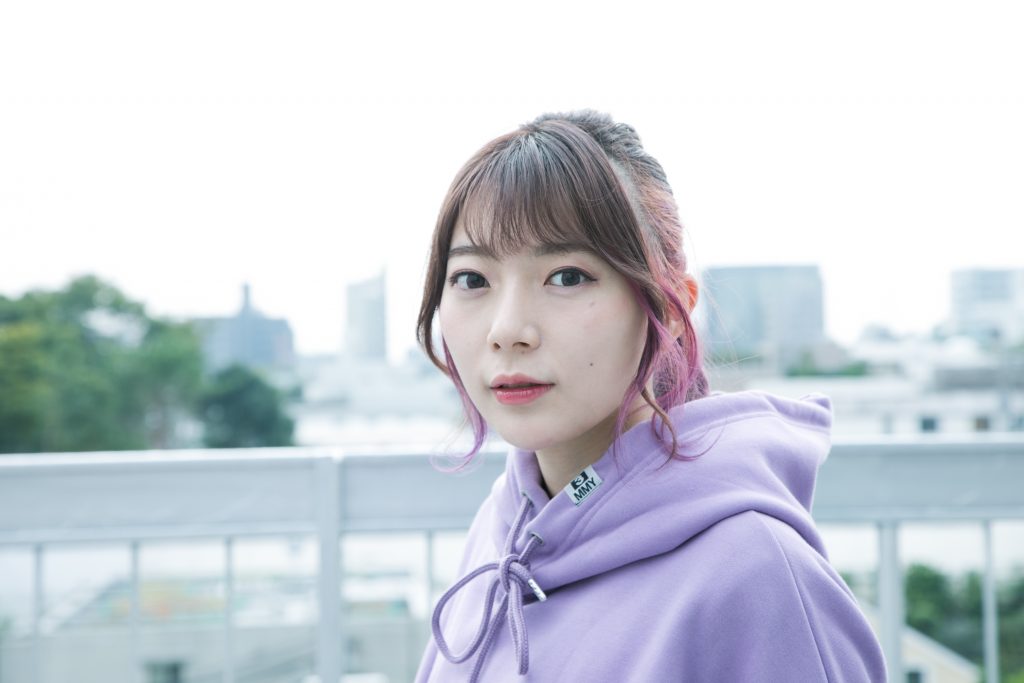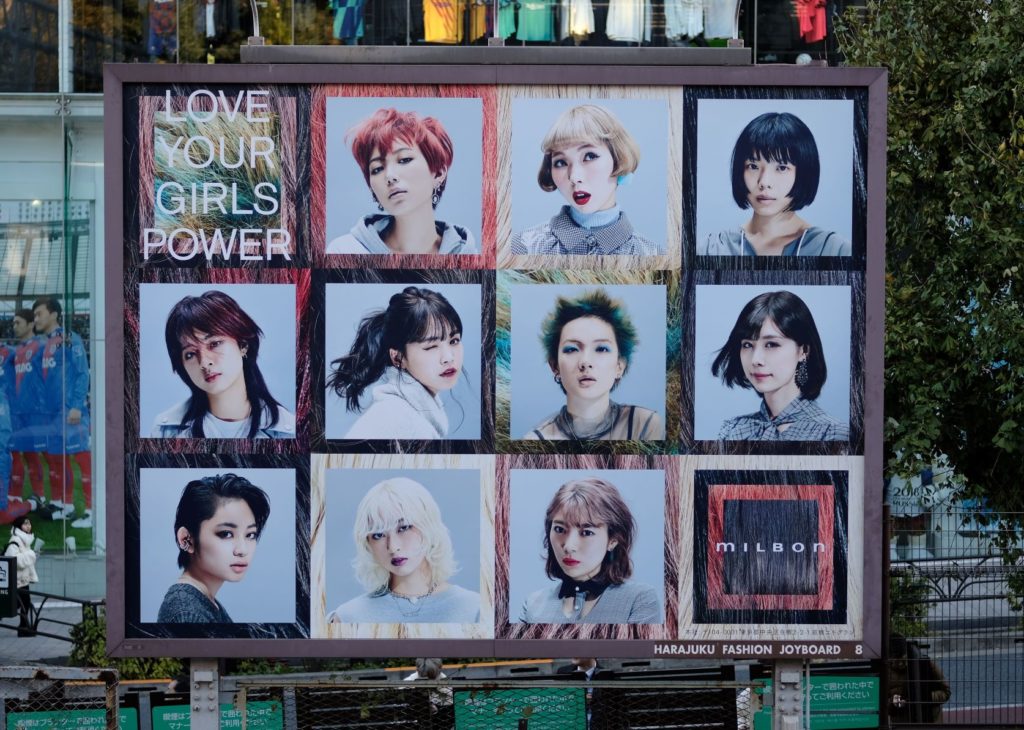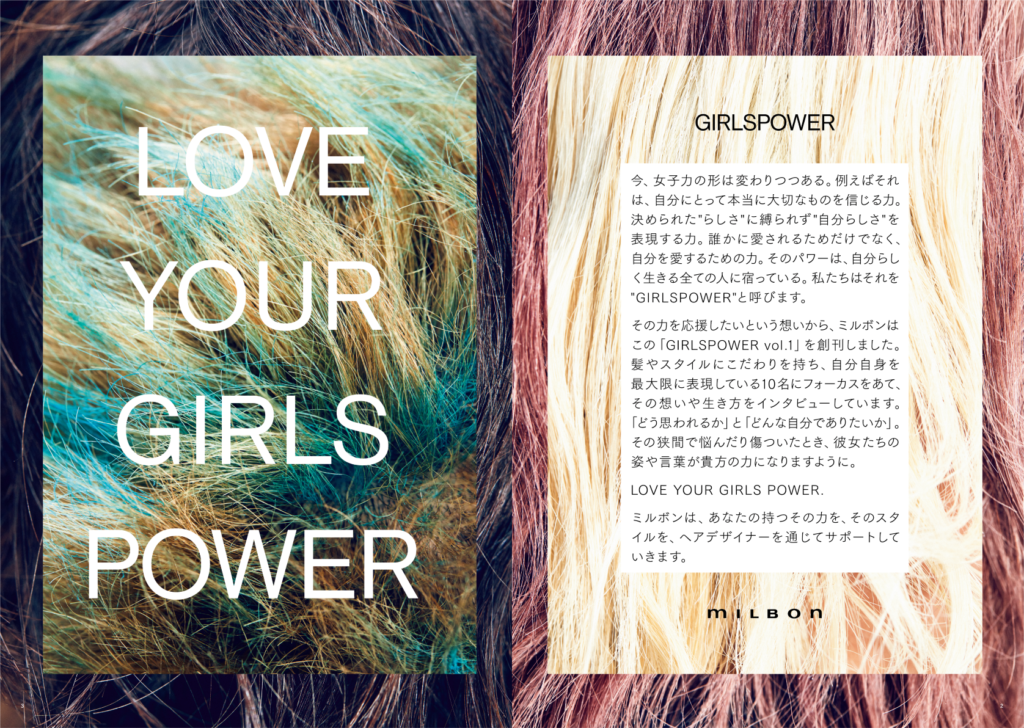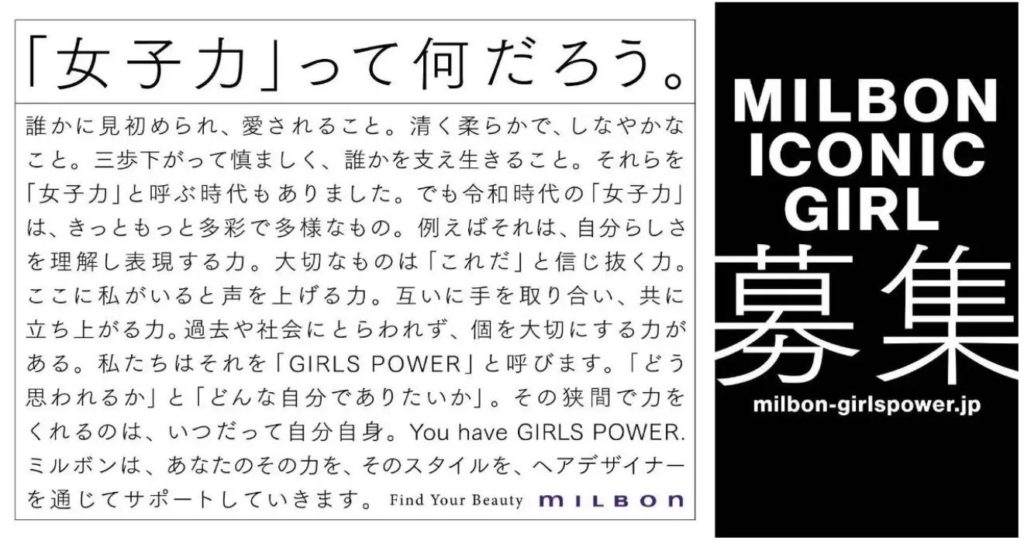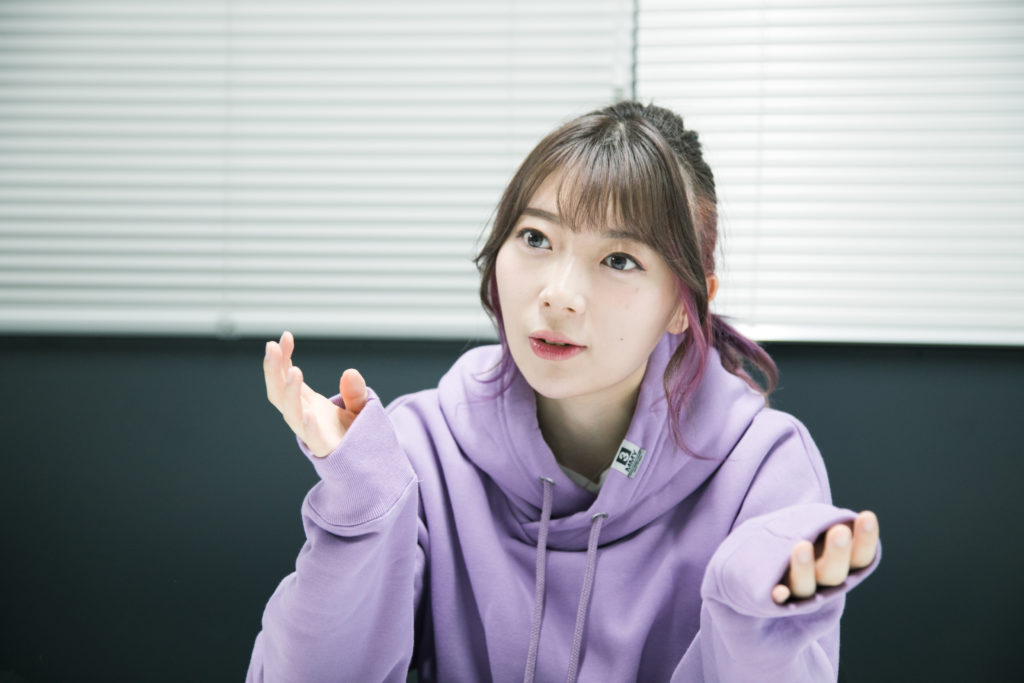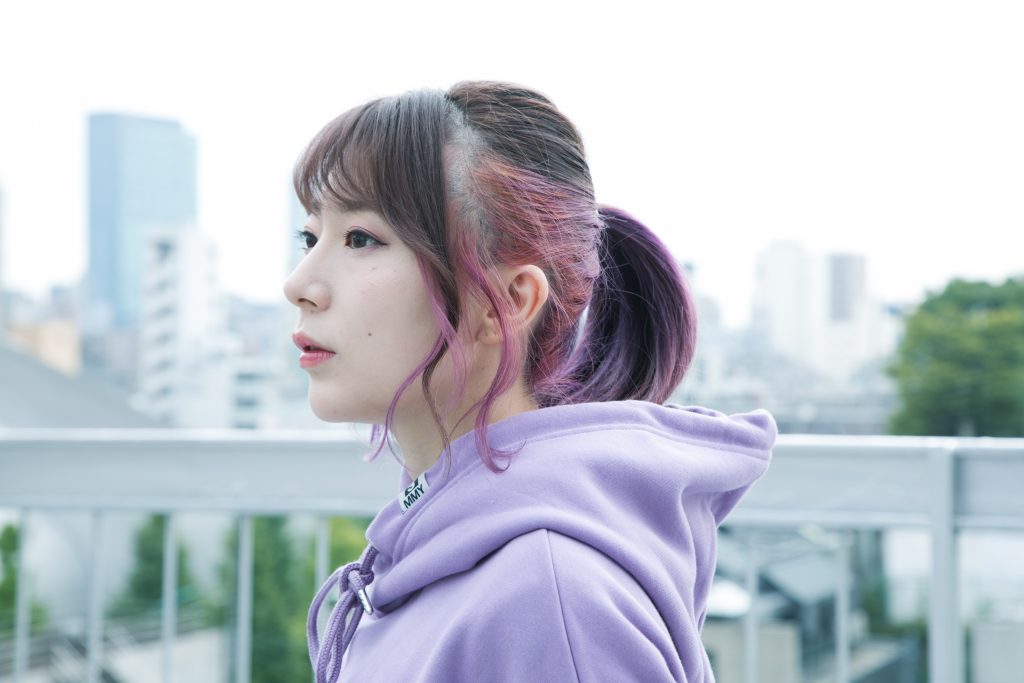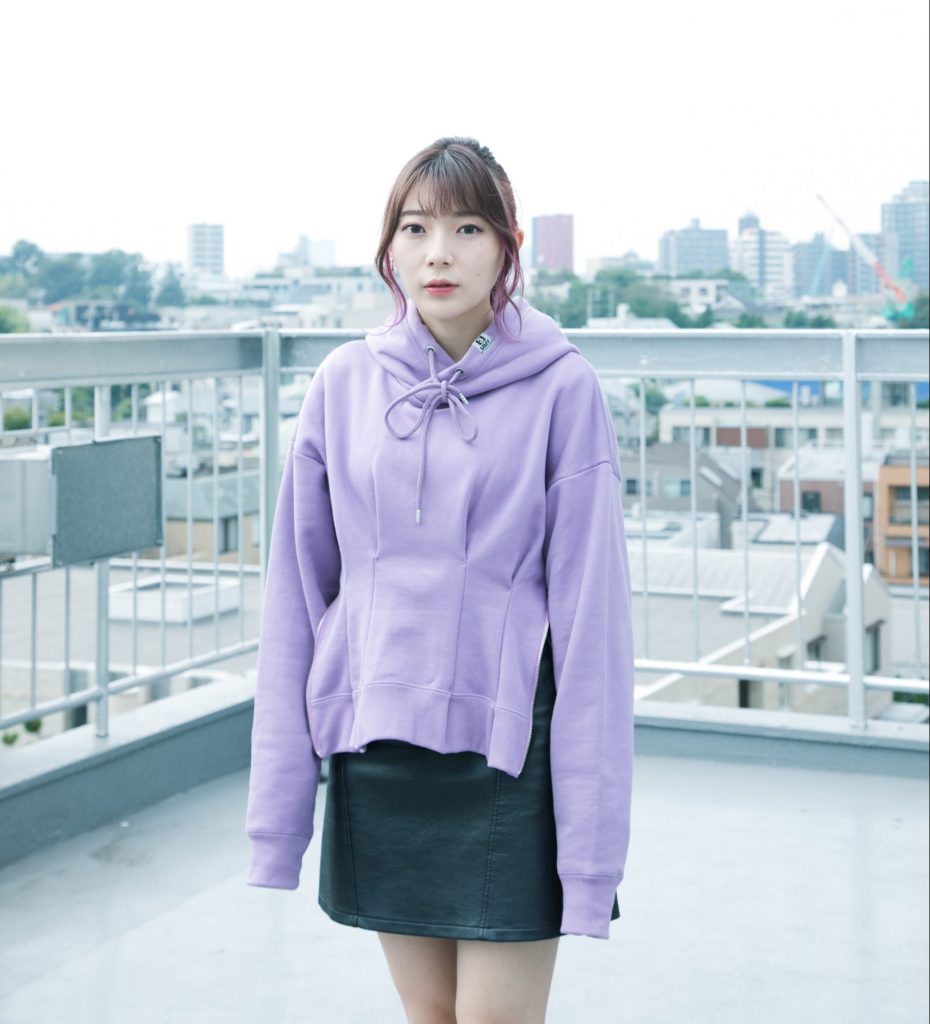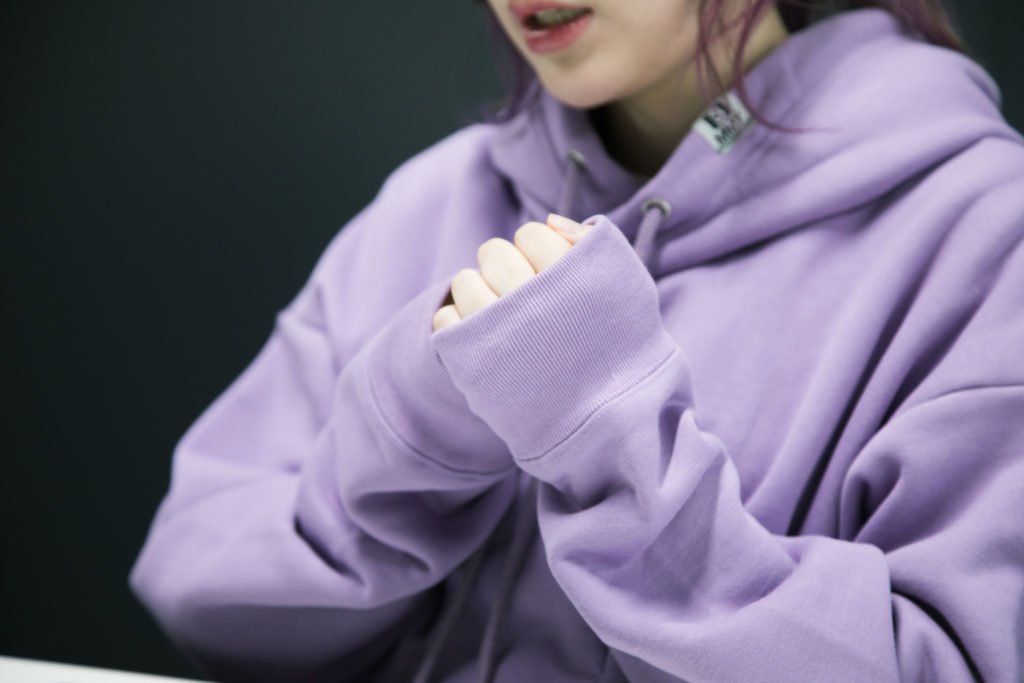The problems are piling up in Japan. Even with a single issue like the gender gap, there’s a list of related problems, and all are a long way from being solved. And it’s only recently that people have started to pay attention to these issues in the first place–so it’s safe to say there are still plenty of issues we’re still unaware of.
Asako Tsuji is a creative director at arca who creates brand advertisements while also leading the women’s empowerment project “Ladyknows”. She also voices her opinions as a commentator on the news program, “news zero.” We talk to her about how she came to talk about social issues through so many different mediums.
What is femininity? An ad born out of personal experience
——You joined adot while you were in university. Why did you decide to go into advertising?
Asako Tsuji: I’ve always liked creating, whether it be drawing or making songs. When I thought about where I could express my feelings about the world, the feelings that I couldn’t quite put into words—I realized that was advertising. While you can create meaningful experiences with cinematic content, it only reaches people who set out to see it. That’s important too, but I wanted to be in the advertising industry because if you want to reach as many people as possible, advertising is a good way to do that, for better or for worse.
——In 2019, you created an ad for Milbon that asked the social question of, “What is ‘joshiryoku?’”*
Tsuji: I think ad copy is often relatable to everyone, while simultaneously revealing something personal. Rather than address a message to the world, it’s easier to express yourself when the message is addressed to “you” and “I.” This copy also strongly reflects my background and opinions.
*Joshiryoku: A Japanese phrase that is often directly translated as “girl power.” This phrase refers to a woman’s ability to act traditionally “feminine”—for example, taking care of one’s appearance, attracting men, or being skilled at housework.
——How does your background relate to the copy, “What is ‘joshiryoku?’”
Tsuji: From kindergarten to elementary school, I attended girl’s schools. But from middle school, I decided to study at a school abroad with a lot of diversity and many nationalities—the total opposite of a conservative, exclusive school. I was raised in that environment, so until I returned to Japan for university, I hadn’t really felt the existence of “joshiryoku.” But when I entered university, I was shocked to see that gender roles were still common practice—that it was normal for girls to be proper and reserved, and boys to be free and even a bit mischievous.
——When you entered the working world, what made you aware that you were a woman?
Tsuji: When I quit my combined school and went abroad in middle school, there weren’t really precedents for that around me. So I got some snide comments like, “You’re pretty mischievous for a girl.” And as I entered the working world and began accomplishing things, it increasingly became compliments that unconsciously reinforced stereotypes like, “You work so hard for a girl” or “You even put men to shame!” Those are compliments because people view hard-working women as unusual, or think women are competing with men in a win-or-lose situation. It felt really strange.
And although in university, I was called “mischievous” for wanting to walk my own path, when I entered the workforce, that became me being able to “take initiative,” and suddenly it was a positive evaluation. That reminded me that evaluation from others is such an unreliable thing, and we don’t need to be bound by it. Shoko Ryuzaki (L&G representative who manages HOTEL SHE) said that the differences between individuals are bigger than the differences between the sexes, and I really like that quote. I think that’s exactly right.
——So that pressure to act a certain way led to the copy.
Tsuji: Women are Milbon’s main customer demographic, so as part of my creative conception, I looked up images of “joshiryoku,” a word associated with women. The results were exactly like you’d imagine: standard, conservative images of women. Humble and obedient. But the word “joshiryoku” directly translates to “girl power” in English, and when I tried searching for girl power, the results were completely different: Girls who stood out, and who were strong and beautiful for no one but themselves. I think strength doesn’t belong to a gender—it belongs to individuals. So I wanted to express that there are as many kinds of girl power as there are individuals.
I cast Yukosu (Yuko Sugamoto), Youtuber Asagiinyo, Airi Arimura who was publicized for her plastic surgery, artist Ayano Kaneko, and a variety of people, including two people out of 600 applicants in a casting call. We talked to them about what they think “girl power” is, and did each woman’s hair and makeup in a way that visually maximized their individual strength and beauty. It’s okay to want to be a humble, gentle woman, and it’s okay if you want to be a strong woman who stands out. In the advertisement, I wanted to show that diversity and freedom to be yourself.
——It was refreshing to see copy in the form of a question with, “What is ‘joshiryoku?’”
Tsuji: I wanted to create an ad that left room for the viewers’ own interpretation rather than just present a correct answer, so I wrote it in question form. If you scan the QR code on the ad, you can read the cast’s responses to “What is joshiryoku to you?”, and everyone’s answers are different. My aim was to create a message where viewers could think of themselves as the subject, giving them a chance to reflect.
Answers are something you come up with yourself. Talking is a chance to become more aware.
——Your project, “Ladyknows,” also creates an opportunity to become more aware of social issues.
Tsuji: On a fundamental level, many societal problems relate back to the same main cause. Issues related to childbirth are connected to women’s careers, men’s use of paternity leave, income inequality, irregular employment, and many other issues. If you look at it from that perspective, you can understand how women haven’t gained their rights, and on the other hand, that there’s a social environment that doesn’t allow men to take paternity leave. Often, seemingly conflicting issues are actually connected. Ladyknows presents data related to these issues in the form of infographics, and I think that when we look at the facts and discuss them, we can think about an issue from a variety of perspectives.
We also distribute articles that go with the data, but I’m always careful not to present the answer in every article. It’s important that people inform themselves with different perspectives, and it’s ultimately up to the reader to decide what to think or what they want to choose.
——What problems do you think are created from being unaware or not knowing?
Tsuji: Unconscious bias and discrimination just means you haven’t considered another perspective. So rather than just turning my nose up at people, I try to listen to the reasoning behind their opinion. And usually, there’s a reason, so I can think, “I see” and become more aware. I don’t endorse their opinion, but I can understand it. I think it’s important to be able to separate things that way.
——As a commentator for “news zero,” what are you conscious of when expressing your opinions?
Tsuji: There are so many people who watch TV, so I try to be conscious of not making the subject matter too big. You have a short amount of time to speak, so when I try to keep it brief, it tends to sound polarizing. That’s why even if it cuts into my speaking time, I often preface my statements politely, like, “Of course there are all kinds of people…” so I don’t enforce a stereotype. I think the viewers have all kinds of opinions, so when I inform people, I try to value my own opinions while also learning from others’ opinions every day, like, “I hadn’t thought of it that way!” I try not to think of things in absolutes like right or wrong, and instead try to be understanding of differences.
——Up until now, commentators have been asked to play the role of showing the “right” answer. What do you think about this?
Tsuji: Even on social media, when it comes to elections and current events, you’re often asked about your opinion, like who you support or what you think. I think the reason a lot of Japanese people look for the “right” answer is that we’ve been influenced by Japan’s education system, which teaches us that there’s only one “right” answer. I also ask specialists and tutors all kinds of questions, but ultimately, I think it’s up to me to decide how to interpret everything. Although I can empathize with feeling like thinking of your own answer can be scary and a new responsibility.
How to deal with the intolerance to ambiguity
——When I see online controversies, I feel like Japan no longer has an atmosphere where everyone can freely express their opinions.
Tsuji: I think Japan has very strong faith in education. Even in feminism, I feel that there’s a bit of an atmosphere where you can’t speak about something you haven’t been educated on. I once heard someone say, “Men who have never even thought about feminism have no right to talk about it now.” I felt really uncomfortable with that.
Of course, if someone who isn’t educated talks about an issue, there’s the danger of misinterpretation or someone’s general idea being wrong. But social issues in general won’t change unless we democratize awareness of the issues to more people, not just a few interested parties. Anyone, at any time, can become aware of an issue, learn about it, and change. So there’s no need for the “right to talk about it.” If people are outspoken about the things they think and notice, I think this will lead to more awareness.
——Do you think this is caused by Japanese society’s intolerance towards outsiders?
Tsuji: I think the intolerance towards the certain processes that we all go through—like the process of becoming aware of a new perspective, or the process of reflecting, learning, and changing even if you made a mistake—is apparent even in what I was saying earlier about looking for the “right” answer. No one is perfect, and everyone has their own unconscious biases, or perspectives they’re unaware of. So it’s important to take action and change, rather than just immediately criticize each other using a point deduction system based on one moment in time. Instead of condemning our mistakes or failures, we need to reflect on them together.
One time, a friend reached out to me about racial issues, asking, “Everyone is talking about it, but I’m honestly not sure what the issue is. Could you educate me?” That’s a question that comes from a place of wanting to understand and learn, but just saying “I don’t understand” can be seen as problematic or result in attacks, so it’s hard to say that on social media or other public spaces. But I think it’s more important than anything to have places where we can learn when we don’t understand, and to keep an attitude of wanting to learn.
And I think everyone should also take a good look at whether someone is intentionally trying to harm someone out of malice, or trying to educate themselves on something they aren’t aware of. We should make sure not to immediately judge someone for not knowing. To that end, it would be great to have a community to learn and discuss, rather than just lecture or debate.
——With recent online controversies around advertisements, there’s anxiety around making a mistake when you put something out into the world.
Tsuji: I understand wanting to criticize something strongly, but when you go too far, people can retreat into thinking, “It’s too risky, so let’s just stop talking about social issues.” I feel like that kind of point deduction system is really Japanese. In the drama, “Hanzawa Naoki,” people are appointed to a position to show people what they can do, and then if they make a mistake, they’re removed from the corporate ladder. In order to prevent that from happening, companies and creators first need to educate themselves—what the issue is, and the background, such as the surrounding discourse and movements. Also, what the current status of the issue is. If you’re going to tackle these issues, I think it’s a prerequisite that you confront them seriously, not just as a trend. And while we do that, I think we have to separate our individual anger and what’s necessary for society to move forward, so it doesn’t become a risk for companies who are taking the first step of bravely speaking up.
——Being visible in the media can be a “risk,” so why do you continue to speak up?
Tsuji: I think to change the world, we need to create precedents. The reason the rules and norms changed to allow women to vote, open up bank accounts, invigorate companies—it’s all because people from earlier generations took the first step and created precedents. For example, I hope that a regular 2-year-old girl talking on the news can become an example of how young people’s voices can be heard in the world. And I hope that continuing to speak out on social issues in the realm of creative advertising will create a path for others.
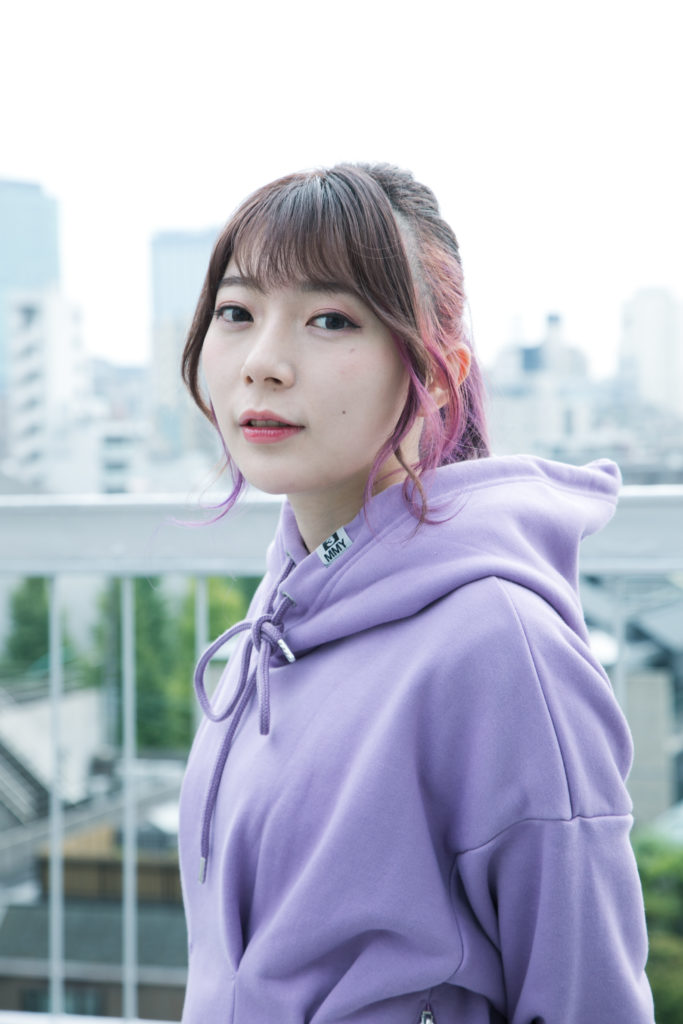
Asako Tsuji
Asako Tsuji is CEO of arca and a creative director. A cross-border creative with a socially-oriented creative approach, she works in fields ranging from advertising to product development with the two main pillars of “making businesses with an ideology and social approach” and “making work with an obsessive worldview.” She’s been involved in creative direction in a wide range of projects, from real events to product planning and brand production. In the spring of 2019, she launched the product “Ladyknows,” which focuses on women’s empowerment and healthcare. From autumn of 2019, she became a regular cast member on the Wednesday broadcast of news program “news zero,” where she challenges the approach to social issues as both a creator and thought leader.
Twitter:@ai_1124at_
https://arca.tokyo
Photography Mayumi Hosokura
Translation Aya Apton

